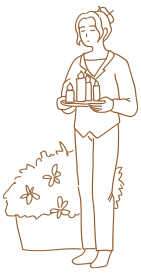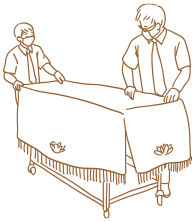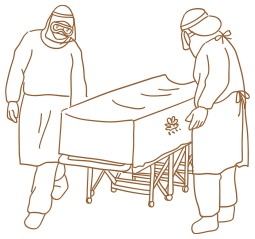

 Safeguarding the Dignity of the Departed
Safeguarding the Dignity of the Departed
The mortuary is not just a part of hospital facilities but is also considered the "terminal" service in medical care. When a patient passes away,it requires professional personnel to transport them to the mortuary. At this point, maintaining the dignity of the departed and ensuring a peaceful body transportation process are incredibly important.
Apart from transporting and preserving the deceased, the mortuary serves as a station for family members to regulate their emotions. For most people, the immediate impact of losing a loved one is immensely emotional. They need a period of bereavement, including rest and a tranquil, safe space to calm their emotions and consider arrangements for what follows. Therefore, Wonann Life introduces the concept of healing into the mortuary. Through creating a supportive ambiance and guidance from professional service personnel, family members can take moments here to relax, collect their thoughts, or discuss future plans with their loved ones.
Preventing the Spread of Communicable DiseasesIn the event of a patient with an infectious disease, strict adherence to the regulations set by the Taiwan Centers for Disease Control, Ministry of Health and Welfare, is necessary. This includes wearing specialized gear and following designated routes specified by the facility for the transportation process. After completing the task, proper removal and disinfection of the equipment are mandated to prevent the spread of infectious diseases. Therefore, all Wonann Life personnel are required to undergo regular training in "Disease Infection Control".
Mortuaries operated by Wonann Life have professional staff stationed 24/7. Free consultation services are provided, including end-of-life care, preparation upon receiving a critically ill notification, social insurance application procedures, invitations to religious groups for prayer or memorial services, and more. Acquiring relevant information beforehand doesn't mean its imminent use. You may treat it as common knowledge. This proactive approach allows individuals to calmly handle unforeseen circumstances and become a pillar of support for their families.







 語言 / Language
語言 / Language

